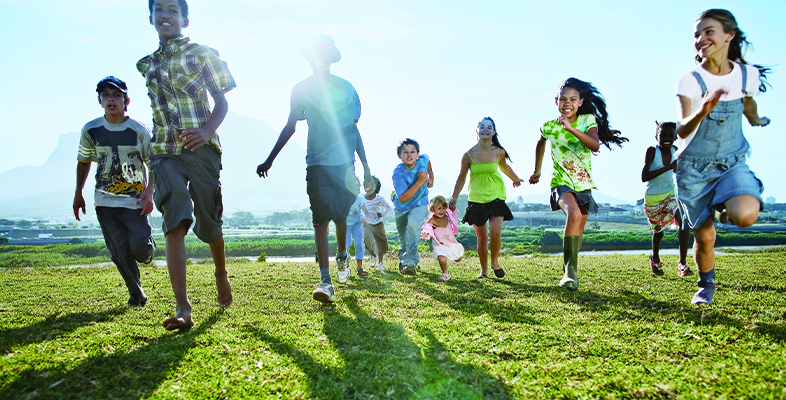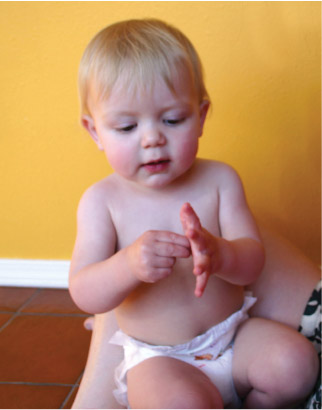1 Babies and the early years
To understand literacy skills, we would like you to start by thinking about how babies learn to communicate.
It is well known that babies want to communicate with other people and they move quickly from communicating through crying and making noises to saying recognisable words. The following extract taken from the Words for Life [Tip: hold Ctrl and click a link to open it in a new tab. (Hide tip)] website shows how quickly babies move on from those initial communications to saying their first word, then on to speaking their first sentence.
Baby and toddler communication milestones
‘Look at me copying you.’
From birth I will make eye contact and copy your expressions. This is one of the first ways in which I learn to communicate.
‘My first smile.’
Around six weeks I may smile for the first time.
‘My first laugh.’
Between three and six months I will probably start laughing. Hearing my infectious laughter will help us bond even more and make it more rewarding to talk and interact with me.
‘Mummy, look at me!’
At around six months I will start using noises to get your attention; coos or gurgles.
‘Ma ma ma, Da da da’
Around eight months I will probably start to babble. The repetitive noises I make are the beginnings of speech and give me the chance to exercise my mouth.
‘Did you say my name?’
Around eight or nine months I will begin to recognise and respond to my name.
‘My first word!’
At around 12 months I may say my first word. And by 13 months I may be using up to six words.
‘I’ve reached 50 words!’
At around 18 months I will have increased my vocabulary to about 50 words. This is a time in my life where you may notice an explosion in my vocabulary; it’s an exciting time for me as I quickly add more and more words.
‘My first sentence!’
At some point between the ages of 18 and 24 months I will put together my first sentence. It may not be grammatically correct or easy to understand but it’s a very important part of my language development. Remember to keep reading, talking and interacting with your child as this will help them continue to expand their vocabulary and their understanding of grammar, words and language.
Interaction with adults is an important stage in the development of a baby’s communication skills.
Studies have identified five specific ways in which parents talked to children. These had the most positive impact on the children’s development, and their long-term verbal ability:
- they just talked, generally using a wide vocabulary as part of daily life
- they tried to be nice, expressing praise and acceptance and few negative commands
- they told children about things, using language with a high information content
- they gave children choices, asking them their opinion rather than simply telling them what to do
- they listened, responding to them rather than ignoring what they said or making demands.
The Welsh Government has emphasised that raising literacy standards is one of its main priorities. The ‘Ready to Read’ report highlighted that Wales' poorest children are already struggling with language skills when they start primary school.

